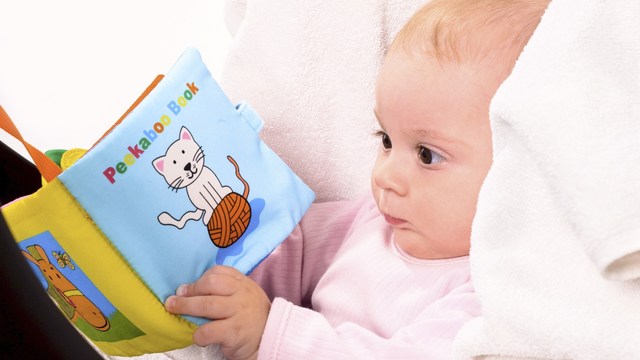 MonkeyBusiness Images/PhotoSpin
MonkeyBusiness Images/PhotoSpin
Pregnancy, especially for first-time mothers, can be a daunting time as there is so much conflicting information about what to eat, what to drink, and what supplements to take to make healthy babies.
Fortunately, there are some obvious standards to follow, such as a prenatal vitamin with extra folic acid, quitting smoking and drinking, eliminating most seafood, and stopping most herbal supplements and teas unless they're safe for pregnancy.
There are three pregnancy-safe nutrients that may provide additional support to brain development and, subsequently, smart(er) children. Remember, before rushing out to buy anything, consult with your health care provider.
1) Choline
This water-soluble B vitamin is critical for brain development and cell membranes. Recent research in the June 2013 American Journal of Epidemiology found that those pregnant women who consistently ate 325 mg or more of choline had children with better visual memory skills than those who did not.
Choline is generally considered safe unless taken in extreme dose (10 grams or more). It should not be taken if someone is also on the medication methotrexate. For those looking to eat their way to healthy levels, food sources include beef liver, wheat germ, eggs, beef, cod, Brussels sprouts and broccoli.
2) DHA
DHA is otherwise known as docosahexaenoic acid. It's part of the omega-3 mix, with EPA. DHA specifically has been associated with better brain development as it helps the rapidly growing neuronal cells, particularly in the last trimester of pregnancy.
Formula and baby food makers have begun adding DHA to their ingredients to ensure infants and growing children get enough of this healthy nutrient.
DHA supplements should be at least 300mg and come from a reputable source where the oil is screened for toxins, heavy metals and chemicals. Be very careful while pregnant when eating the popular omega-3 source of fish, such as salmon, sardines and anchovies.
3) Iron
Becoming iron anemic (or low on iron) while pregnant is a common development. Iron is critical for DNA synthesis and cognitive development. Most prenatal vitamins add extra iron as pregnant women should be taking about 30mg per day during these nine months. However if a pregnant woman's blood levels drop she may need more.
In food, the best iron sources are beef, dark meat chicken, oysters, blackstrap molasses, lentils, and fortified foods such as cereals. Some forms of iron cause constipation and intestinal upset, which may already be a problem during pregnancy. Iron should not be taken within four hours of taking thyroid medication.
Developmental delays and attention deficit disorder continue to climb in the lives of our children. Talking with your health care provider about additional baby brain development to help make your child as smart as possible, providing the best start in life that you can.
Sources:
1. Boeke, M., Gillman, M., Hughes, M., Rifas-Shiman, S., Villamor, E., and Oken, E. Choline Intake During Pregnancy and Child Cognition at 7 Years. Am J Epidemiol. 2013;177(12):1338-1347.
http://www.ncbi.nlm.nih.gov/pubmed/23425631
2. Higdon J. (updated by Drake, V. and Zeisel, S.) Choline. Web. 1 July, 2013.
http://lpi.oregonstate.edu/infocenter/othernuts/choline
3. Boyles, S. Pregnant? Omega-3’s Essential for Baby’s Brain. Web. 1 July, 2013.
http://www.webmd.com/baby/news/20040716/pregnant-omega-3-essential-for-babys-brain
4. Klemens, C., Salari, K.,and Mozurkewich, E. Assessing Omega-3 Fatty Acid Supplementation During Pregnancy and Lactation to Optimize Maternal Mental Health and Childhood Cognitive Development. Clin Lipidology. 2012;7(1):93-109.
http://www.futuremedicine.com/doi/abs/10.2217/clp.12.1
5. Higdon J. (updated by Drake, V. and Wessling-Resnick, M.) Iron. Web. 1 July, 2013.
http://lpi.oregonstate.edu/infocenter/minerals/iron
Reviewed July 1, 2013
by Michele Blacksberg RN
Edited by Jody Smith





Add a Comment1 Comments
Lecithin is the best source of choline.
July 1, 2013 - 12:47pmThis Comment